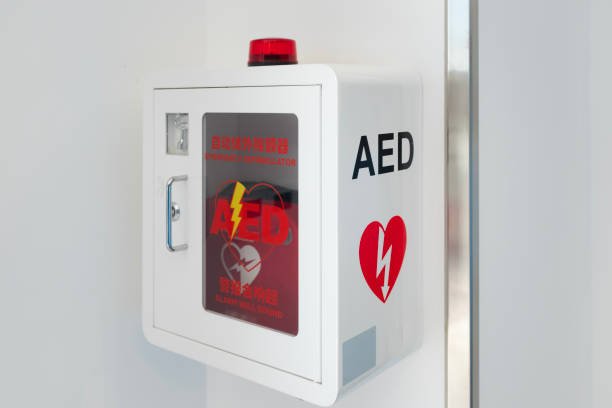
It Only Takes a Few Minutes to Kill! The Causes of Sudden Cardiac Death. Prevent Sudden Death With These 4 Tips!
Heart disease is the number one cause of death in the world. However, many heart disease patients are not aware that they have a heart problem until acute symptoms such as myocardial infarction or severe arrhythmia occur. . This article will take you through the causes, symptoms, complications and prevention methods of sudden cardiac death (Sudden Cardiac Death) caused by cardiac arrest.
Cause of sudden death
The medical definition of sudden death means that it takes less than an hour from the onset of symptoms to death. It is estimated that about 5,000 to 10,000 people die suddenly in Taiwan every year. There are many situations of sudden death, which may occur during sleep, exercise, rest, etc. According to epidemiological studies, cardiovascular diseases account for 90% of sudden death rates, most of which are coronary heart disease. Others include hypertrophic or enlarged heart disease, myocarditis, arrhythmia and other diseases. The chance of sudden death among the general public is about 0.5 to 1 in 1,000, but the sudden death rate among people with myocardial infarction is 30%; and for those with poor ventricular function or heart failure, the sudden death rate is as high as 15%. Therefore, people with high blood pressure, diabetes, metabolic syndrome, high cholesterol and smoking habits must pay special attention.
Sudden cardiac death = heart disease, myocardial infarction?
When it comes to sudden cardiac death, many people equate it with myocardial infarction or heart disease, but in fact they are quite different.
Sudden cardiac death is mainly caused by abnormal ventricular discharge. If you imagine the heart as a machine that requires electricity to beat, when the discharge is normal, the heart will regularly maintain a stable beating speed, but when the discharge is abnormal, it will It may cause arrhythmia, and ventricular fibrillation or ventricular tachycardia are the more serious conditions of arrhythmia.
In these two situations, the beating of the heart may become irregular or very fast, making it impossible to maintain blood circulation. When this situation occurs, the human body will become comatose due to lack of oxygen in the brain, and the heart will lose its function. The ability to jump, and if not immediately treated, death may occur within minutes.
Sudden cardiac death without warning
When we usually talk about heart attacks, they are mainly talking about the symptoms caused by myocardial infarction. When the arteries are blocked, the nutrients and oxygen transported by the blood cannot reach the heart smoothly. If immediate treatment is not obtained, the mortality rate is quite high. high.
To put it simply, although sudden cardiac death and myocardial infarction are both heart problems and have a high mortality rate, sudden cardiac death is a heart problem that occurs suddenly without warning. During the onset, the heart can no longer beat normally; myocardial infarction Symptoms will only occur when the arteries are blocked to a certain extent, and the heart can still continue to beat during the attack.
4 risk factors for sudden cardiac death
Although sudden cardiac death and myocardial infarction are explained separately above, the two actually affect each other. The following are 4 risk factors that can easily cause sudden cardiac death:
- Previous heart attack:
Among patients with sudden cardiac death, up to 75% have experienced a heart attack (myocardial infarction), especially within 6 months after a heart attack, which is the most common period for sudden cardiac death. - Coronary artery disease:
Coronary heart disease also includes myocardial infarction, which is not only one of the causes of heart disease, but also increases the incidence of sudden cardiac death. Incidentally, smoking, family inherited cardiovascular disease, and high cholesterol are all possible causes of coronary artery disease. - Cardiomegaly:
Cardiomegaly may cause abnormal heartbeat speed and make the heart muscle more susceptible to damage. - Congenital Heart Disease:
For young people under the age of 35 who suffer sudden cardiac death, congenital heart disease is the main cause. Because the heart is born with defects, the incidence rate is high.
If sudden cardiac death occurs, call 999 immediately
If it happens to you, if you are still conscious, of course you should call 999 immediately for help. If you have passed out, you can only rely on others to rescue you. If you see a relative, friend or passerby suddenly fainting, and after measuring the pulse, you find that there is no heartbeat, it may be a symptom of sudden cardiac death. Please call 119 immediately to report the ambulance unit, and use cardiopulmonary resuscitation (CPR) or an automated external defibrillator. (AED) to help patients restore their heartbeat.
If there are other people around you at the time, you can ask them to call 999, and you can provide first aid to the patient immediately, increasing the chance of successful rescue.


4 ways to avoid sudden cardiac death
If immediate rescue is not provided when heart disease occurs, the mortality rate is quite high. Therefore, how to avoid the disease has become the most important issue. It is recommended that you refer to the following four prevention methods:
- Regular work and rest:
Maintain a regular work and rest time and sufficient sleep time, and try to avoid being in an environment with high pressure and high working hours for a long time to reduce the chance of sudden cardiac death. - Quit smoking:
Smoking may cause coronary artery disease. When the chance of heart artery blockage increases, it may also cause sudden cardiac death once a myocardial infarction occurs. - Maintain a good posture:
Obesity will increase the chance of heart disease. It is recommended to maintain a normal weight, quit drinking and eat less foods high in fat, calories and sugar. - Exercise:
Whether it’s aerobic or weight training, exercise can lower blood pressure and boost good cholesterol (HDL-C, high-density lipoprotein cholesterol), which can prevent plaque buildup in the arteries and reduce the risk of cardiovascular disease. .












